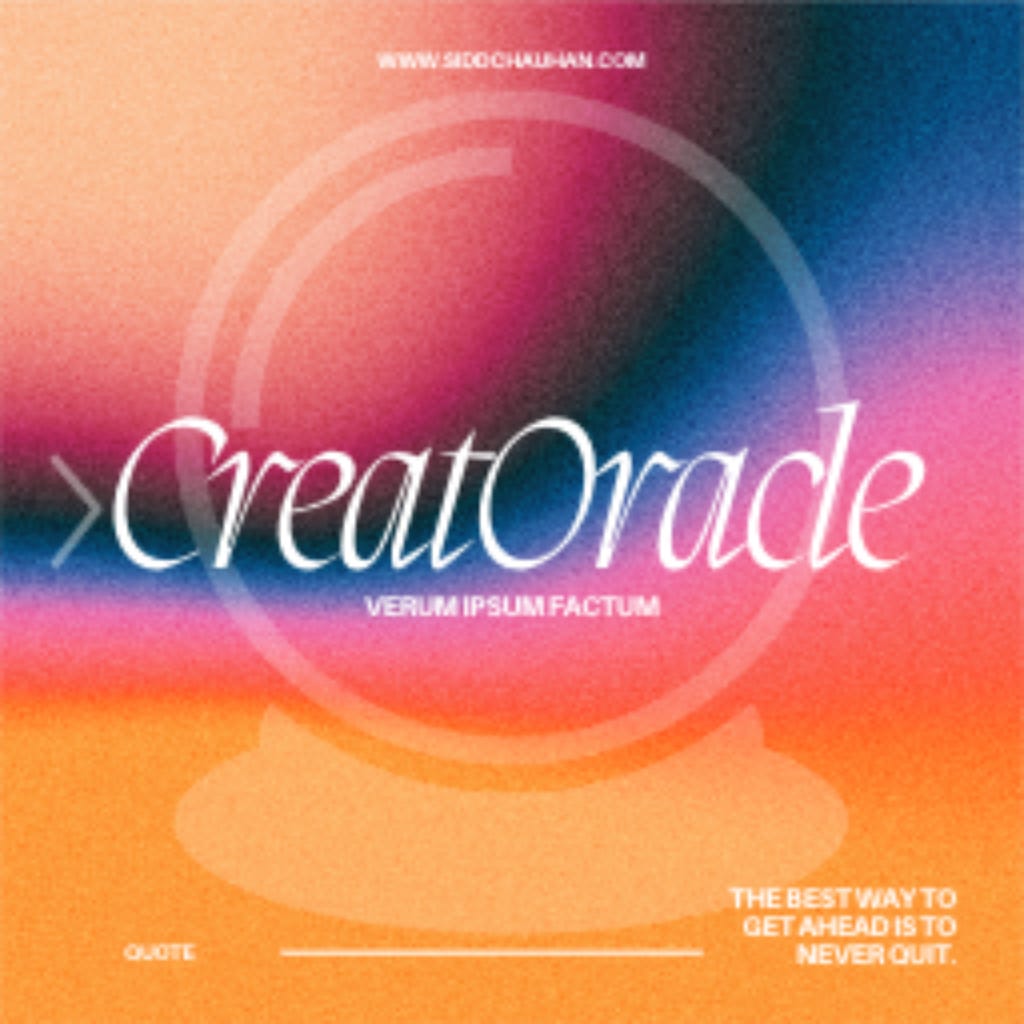The Feeling You’ve Been Ignoring Deep Down

Effects of Cultural Conditioning
When I was growing up in India, soccer (or as I like to call it, football!) was the popular sport, and I naturally gravitated towards it. I became deeply interested in the game and took pride in the skill level I achieved. However, life had different plans for me, and we moved to the United States, where basketball seemed to reign supreme.
As a sports enthusiast, I attended various basketball games and would get caught up in the excitement of the possibilities. But I realized that I was merely an excited observer, not an active participant. I hadn't taken the initiative to learn and play the game myself. It took me a long time to overcome the fear and apprehension that held me back from practicing and truly embracing basketball.
Reflecting on that memory, I've learned something important.
Just watching from the sidelines of our own lives can make us feel like something is missing. To change that, we need to be brave and try things that make us uncomfortable. Stepping outside our comfort zones is the key to unlocking our full potential.
"Fear is the mind-killer" is a powerful quote from one of my favorite books, Dune by Frank Herbert. However, I'd like to tweak it a bit to say that [Discomfort] is the mind-killer.
I strongly believe in the idea that we shape our lives first in our minds and then in reality. If we let discomfort poison our minds, it can lull us into a sedated state where we settle for less than we're capable of. We stop taking risks.
While accepting things as they are can be a useful starting point, it can also become the only path we see. Imposter syndrome often plays a significant role in this.
Think of it this way:
Imagine you're in a game, but you feel like you're just pretending to be good, and you worry that others will discover you're not really as skilled as they think you are, even though you actually are talented. This self-doubt can limit your true potential.
From my personal experience, imposter syndrome can stem from the cultural conditions in which we grow up. While culture can shape us and provide strengths, it can also hold us back from becoming the best versions of ourselves.
During my time in primary school in India, I attended a highly regarded institution where education was focused on memorization and regurgitation of lessons from books. The fear of deviating from the prescribed definitions and even asking questions in class was deeply ingrained. This mindset dominated my thinking for a long time, and its remnants can still be seen today.
But then, the script flipped when I moved to a different country. There, the emphasis shifted to expressing opinions, presenting claims, and sharing personal insights on how topics made us feel. Initially, this was incredibly challenging for me as I hadn't developed the skill of expressing myself freely. Timed writing assignments in high school became my greatest challenge, and it took numerous failures to realize that there are alternative paths to success.
Looking back from the future, we realize how much our past shapes us. It's fascinating to see how the experiences we've had can have a profound impact on every aspect of our lives.
Not embracing discomfort can cause long-term damage that affects our minds, relationships, skills, and overall fulfillment. It's like a cozy sedation that keeps us going through the motions, but deep down, we feel a constant sense of dissatisfaction and unfulfillment.
Regret is one of the ways this damage manifests. The book "Five Regrets of the Dying" by a palliative care nurse captures profound insights from those nearing the end of their lives. Let's reflect on the regrets they expressed:
- "I wish I had the courage to live a life true to myself."
- "I wish I hadn't worked so hard."
- "I wish I had the courage to express my feelings."
- "I wish I had stayed in touch with my friends."
- "I wish I had allowed myself to be happier."
Really absorb the message and read again slowly. It’s very closely related to its sibling— Stagnation
I define it as staying in one place without any progress, a type of never-ending loop you know you’re in but just don’t have the power to get out of it.
In the show "How I Met Your Mother," we witness a beautiful example in the scene where all the main characters grow old and get married and move on to the following stages of life except for one. While everyone else evolves from the past this character remains stuck in the same place.
This scene shows us what can happen when we resist change and avoid embracing new experiences.
There are steps you can take to embrace discomfort and experience personal growth. Let me share two of them with you:
Fear Inoculation:
Fear inoculation is like training our minds to face fear head-on. It's about gradually exposing ourselves to what we're afraid of in small, manageable doses. Just like getting a vaccine protects us from harmful viruses, fear inoculation prepares our minds to overcome fear and build resilience.
By taking gradual steps and facing our fears in controlled and safe ways, we develop confidence, coping mechanisms, and the ability to handle challenging situations. Remember to start small, be patient with yourself, and celebrate your progress along the way.
Self-Reflection:
Self-reflection is a superpower in life. Taking the time to write down our fears, limiting beliefs, and pain points can help break them down and take action. By setting actionable goals and tracking our progress, we create a system that harnesses discomfort for growth.
It won't be easy, and it may feel strange at first, but over time, embracing discomfort will become a habit. By developing the power to face discomfort head-on, we unlock a world of opportunities for personal growth and fulfillment.
It's time to stay in the stands or step on the court with "skin in the game." Remember, even superheroes have doubts! Express your ideas, bit by bit, and when you look back, you'll be proud you took the leap.
Embrace discomfort, share your voice, and make a difference. The world is waiting for you.


